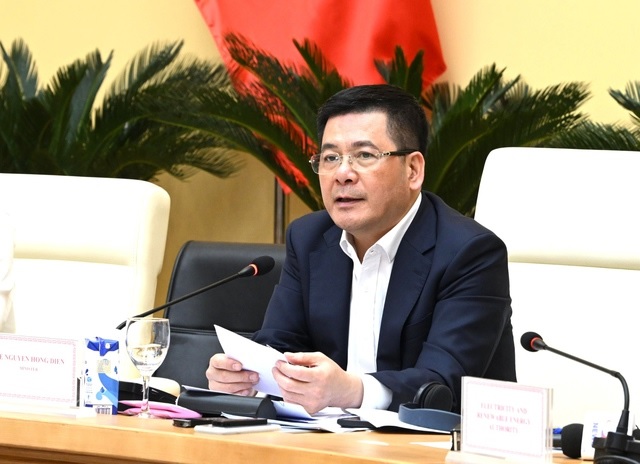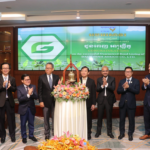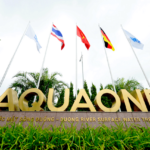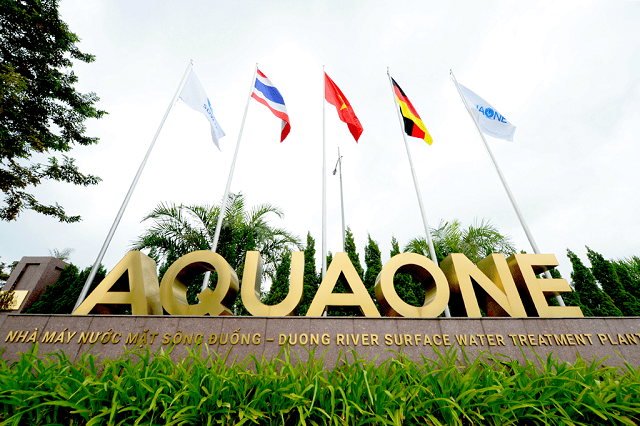On April 24, the Ministry of Industry and Trade organized a Seminar to comment on the draft Decree on direct electricity trading between electricity generation units and customers (DPPA) and the draft Decree on incentive mechanisms for the development of solar power installed on rooftops in homes, workplaces, and industrial parks.
Proposing 2 Trading Methods
Mr. Tran Viet Hoa – Director General of the Electricity Regulatory Authority (Ministry of Industry and Trade) said that recently, many investors, international organizations and electricity users have expressed interest in participating in the DPPA mechanism and expect that the Government of Vietnam will soon issue this mechanism in the hope of achieving global sustainable development goals in line with the general trend of the world.
With the DPPA draft, the Ministry proposes 2 methods, namely trading via a private line (not via the grid) and via the national grid.
Specifically, if electricity is bought and sold via a private line, there will be no restrictions on the type of electricity generation and participating customers. However, it is necessary to comply with current legal regulations on planning, investment, regulations on granting electricity operating licenses; regulations on electrical safety, fire prevention safety, operation and safety in electricity use; regulations on electricity sales and contracts and other relevant legal regulations…
 Minister of Industry and Trade Nguyen Hong Dien
|
As for direct electricity trading via the national grid, the conditions for participation are that renewable energy power generation units (solar power, wind power) have a capacity of 10MW or more and large electricity customers are connected to a voltage level of 22kV or higher, with an average monthly consumption of 500,000 kWh.
Regarding the mechanism that the power generation side will sell directly via a private line, Mr. Kim Yong Sup – Deputy General Director of Samsung Vietnam Complex hopes that there will be clearer and more specific instructions for immediate implementation, without any obstacles and without waiting for new instructions.
With the mechanism of buying and selling electricity through transmission to the national grid, he hopes that the Ministry of Industry and Trade will consider pricing to ensure fairness and competition between power generation units as well as customers.
According to Ms. Virginia Foote, Member of the Electricity and Energy Working Group Management Board, Vietnam Business Forum (VBF), currently large companies belonging to the VBF as well as industrial parks, manufacturing plants have a need for access to renewable energy sources and clean energy. Therefore, VBF is willing to give comments to promote the issuance of the Decrees.
“We will have an official letter to send our comments to the Ministry of Industry and Trade. If the draft Decrees are approved, and the Decrees are issued, it will promote the production and business activities of enterprises, thereby promoting foreign investment attraction in Vietnam,” said Ms. Virginia Foote.
Stressing that the implementation of the draft Decree is of great importance to businesses, a representative of the US-ASEAN Business Council in Vietnam said that it should not be delayed any longer, because it will affect the Government’s foreign investment attraction. The Ministry of Industry and Trade needs to issue it as soon as possible to help foreign investors feel secure, especially businesses with plans for new investment.
“This will promote renewable energy and mobilize private investment in this area. We recommend that it be issued soon, on the principle of creating openness for the participating parties, and avoiding the inclusion of overly detailed content. The issuance does not necessarily have to be too comprehensive, and the first time it is implemented, it can be done and lessons can be learned,” said the representative.
Meanwhile, Mr. Aguin Toru, Chief Representative of the Japan Bank for International Cooperation (JBIC) in Vietnam, said that there needs to be an estimated time of issuance to help businesses prepare better. With DPPA, JBIC must first focus on solar and wind power; the second phase is biomass energy, halogen…
“We recommend that for waste electricity, electricity users in industrial parks that transmit via their own systems will be able to participate in the DPPA segment sooner. For companies that need specific investment plans in the near future, there should be an estimated time of issuance to help businesses prepare better,” emphasized Mr. Aguin Toru.
Excess Power to the Grid at 0 VND is Appropriate
Minister of Industry and Trade Nguyen Hong Dien emphasized that the mechanism for direct electricity trading between renewable energy generation units and large electricity users (DPPA mechanism) in the case of using the national grid system, the output of customers will be paid according to two components.
In which, the share of customer consumption met by the renewable energy power generation unit will be paid according to the market mechanism; the remaining share of electricity consumption will be paid according to current regulations.
The two policies on DPPA and encouraging the development of rooftop solar power for self-production and consumption are completely consistent and do not contradict each other. It should be noted that if the phrase “self-production, self-consumption” is omitted, it will completely change the nature, not comply with the provisions of the law and the plan for power development that has just been approved by the competent authority.
In particular, the Minister suggested that the media convey the message about the nature of the concept of “rooftop solar power for self-production and self-consumption” so that society can understand, share and implement the provisions of the law correctly, develop electricity sources in harmony with the approved electricity plan in each stage, not put additional pressure on the transmission and distribution system, and contribute to reducing stress in the electricity supply.
Therefore, in the current phase, the 0 VND price solution in the case of excess rooftop solar power, transmitted to the national grid, is appropriate, ensuring the prevention of policy profiteering.
Minister Nguyen Hong Dien said that the incentive mechanisms for the type of rooftop solar power for self-production and self-consumption are a breakthrough in the effort to remove legal barriers for the development of electricity sources in the context of some specialized regulations not keeping up with reality.
Regarding the recommendations on the DPPA mechanism, Mr. Dien hopes that businesses and associations will recognize that this mechanism has no precedent in Vietnam, so it will need to be done carefully from the pilot phase.
|
The Ministry of Industry and Trade is soliciting comments from the public on the draft Decree regulating the mechanism and policies to encourage the development of rooftop solar power for self-production and self-consumption. According to the draft Decree, the development of rooftop solar power must be in accordance with the plan for implementing the national electricity development plan, and the plan for implementing the provincial plan. The total capacity of rooftop solar power for self-production and self-consumption that is connected to the national electricity system in each locality does not exceed the capacity allocated in the plan for implementing the national electricity development plan. Rooftop solar power for self-production, self-consumption that is not connected to the national grid is a priority for development, with no capacity limit. The development of rooftop solar power must comply with legal regulations on electrical safety, investment, construction, environment, and fire prevention. Create favorable conditions for agencies, organizations and individuals to proactively develop clean, environmentally friendly energy sources to contribute to ensuring energy security, using energy in a way that saves and effectively uses national resources. |










